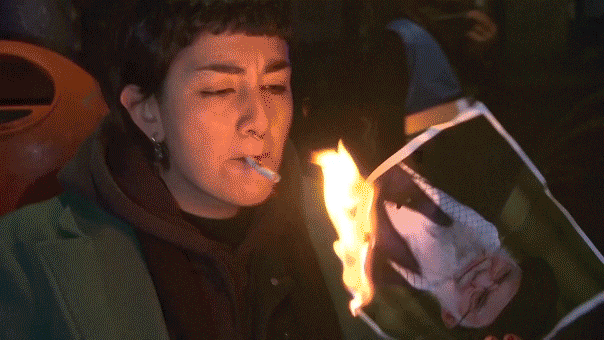UNITED NATIONS – The U.N. envoy for Libya said Monday he fears the recent agreement to resume oil production in the conflict-torn country will not hold unless two issues are speedily tackled — distribution of wealth and "endemic plundering of resources."
Ghassan Salame told the Security Council in a video briefing that unless the issues are addressed it will also "be difficult to advance the political process."
Libya descended into chaos following the 2011 uprising that toppled longtime dictator Moammar Gadhafi, who was later killed. The country is now split between rival governments in the east and west, each supported by an array of militias.
The Security Council has backed the holding of presidential and parliamentary elections in Libya this year but Salame warned that "without the right conditions, it would be unwise to conduct elections."
He said national political consultations over the last 14 weeks that included more than 75 meetings in Libya and abroad and over 7,000 participants showed that "the Libyan people want clear and effective leadership by legitimate bodies, formed through elections."
"However, a handful of people defy this popular desire," Salame said. "The few who benefit from the status quo will, if left unchecked, do whatever they can to hinder elections. Unfortunately, they can do much, especially as they hold crucial, and too often lucrative, official positions."
"Without clear and strong messaging to those who would attempt to stall or disrupt these elections, the conditions will not be met," he warned.
In a statement after closed consultations following the open briefing, the Security Council "underlined support for the U.N.-facilitated, Libyan-owned political process, including the preparations for credible and inclusive elections."
But the U.N.'s most powerful body made no mention of "spoilers" trying to thwart the elections.
The Security Council did welcome the National Oil Corp.'s announcement last Wednesday that it was in charge of the oil ports and would resume exports. The firm is controlled by the U.N.-backed government in Tripoli, which is in the west.
The self-styled Libyan National Army allied with the east's interim government and led by Field Marshal Khalifa Hifter seized the ports earlier this year from another militia led by Ibrahim Jadhran, a rebel commander opposed to Hifter who took part in the 2011 uprising that toppled Gadhafi.
The seizure prompted the National Oil Corp., with international support, to issue a "force majeure" to halt exports, which are Libya's main source of income.
The LNA said it agreed to return the ports for a commitment by the Tripoli-based government in the west to investigate allegations that oil and gas revenues had been used to fund terrorist organizations.
The Security Council condemned attacks by Jadhran's militia against the country's oil infrastructure and said it now expects the National Oil Corp. "to continue its work unimpeded."
Salame told council members the U.N. "will redouble its efforts to push for economic reforms, as the very stability and unity of the country are at stake."
Libya is "in decline," he said. "The crisis in the oil crescent gave us a glimpse of what is in store if tangible progress is not made now — economic collapse, the breakdown of public services, and more frequent and intense outbreaks of violence."
"In a country where terrorists lurk, where criminals are waiting to traffic migrants, where foreign mercenaries are increasing in number, where the oil industry hangs in the balance, this should be of concern to all," Salame said.
He urged Libya's rival leaders to stand by their commitment at a May 29 international meeting in Paris "to engage constructively to enable elections to take place by the end of the year."








































